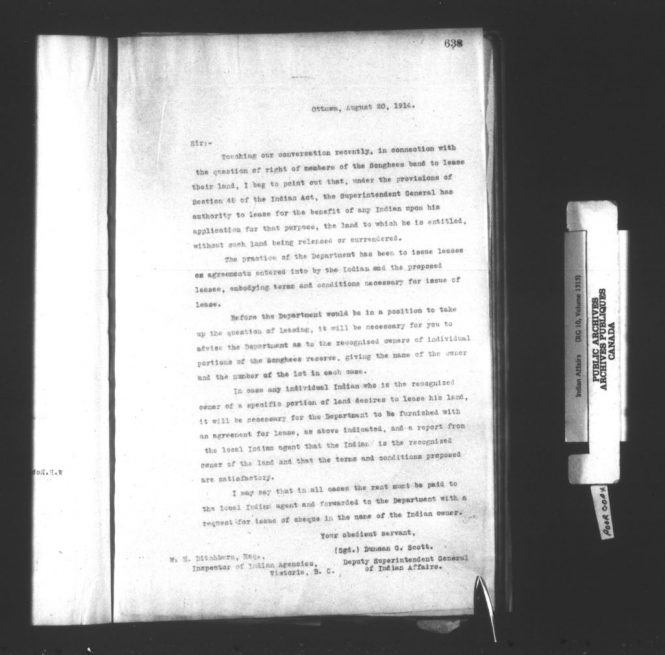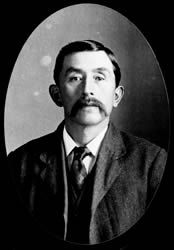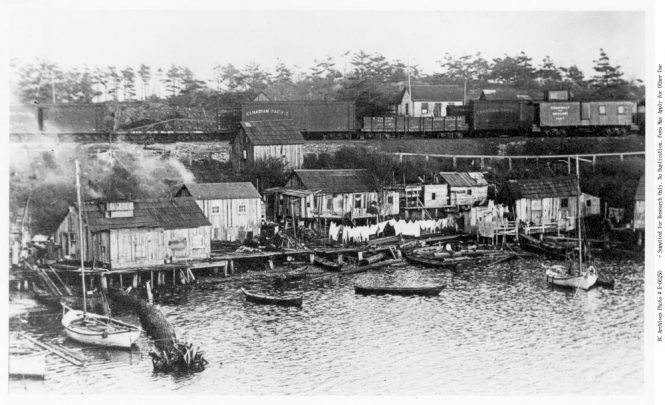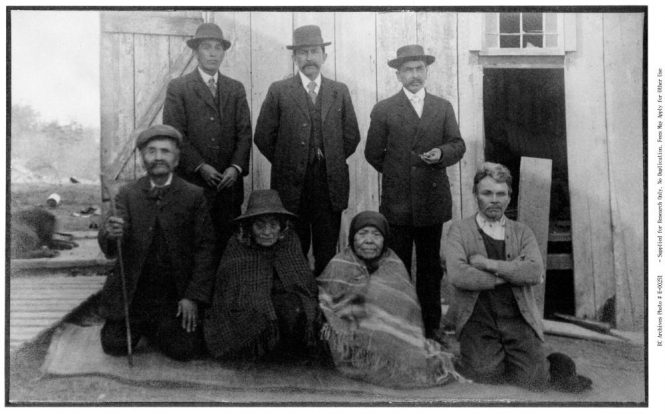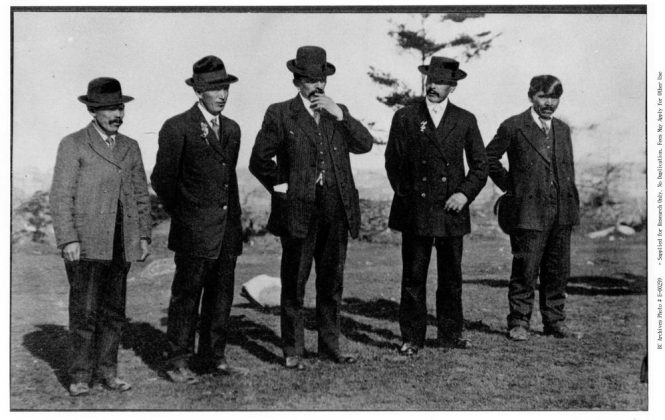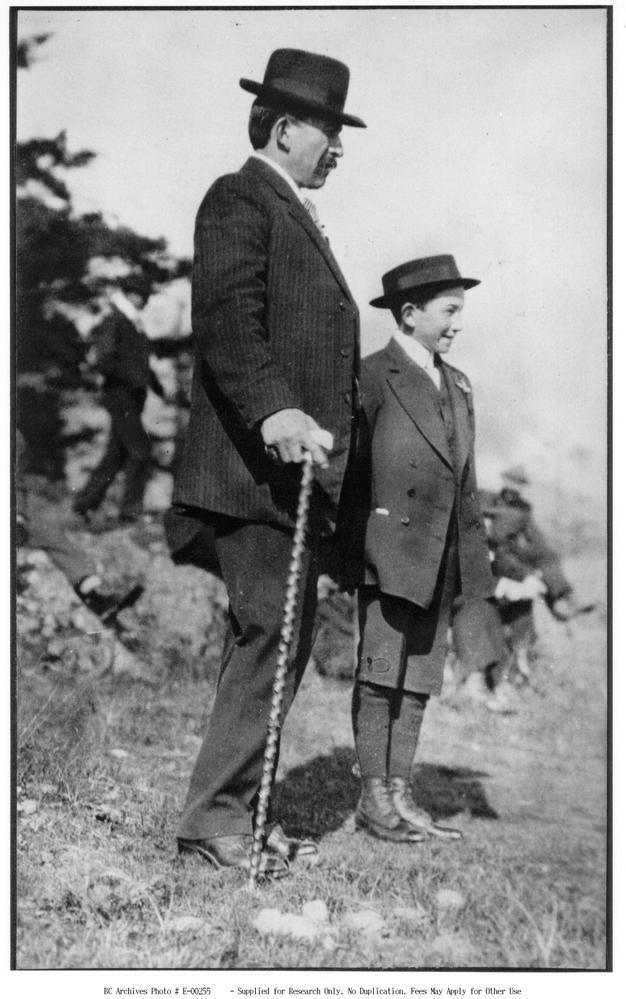Chief Michael Cooper played an instrumental role in the negotiations regarding the relocation of the Lekwungen reserve that occurred in 1911 on Vancouver Island, in the area that is now the city of Victoria, BC. Chief Cooper, the first chief elected under the Indian Act in 1896, was appealing from the settlers’ perspective as he represented what was perceived as “continuity and adaptability”.[1] In the first fifteen years that Cooper was chief of the Lekwungen he was consistently pressured by settlers to move the reserve, a move that the Lekwungen had resisted. However, following an economic boom in Victoria that started in 1907, in 1911 the community agreed to have Chief Cooper negotiate the terms of a relocation that would exchange their historic territory for land neighbouring the Esquimalt reserve.[2]
The terms that Cooper negotiated on behalf of the Lekwungen were deemed agreeable among the majority of the population. [3] The compensation given to the Lekwungen in exchange for agreeing to a reserve relocation was substantial enough to make them one of the richest Indigenous groups in Canada. Each of the heads of forty-one families received as much as $10,000 in cash, in addition to the improvements that came with their new territory (homes, barns, fences etc.).[4] Chief Michael Cooper received even greater benefits, in the form of $28,000, for negotiating the terms of the reserve relocation.[5]

